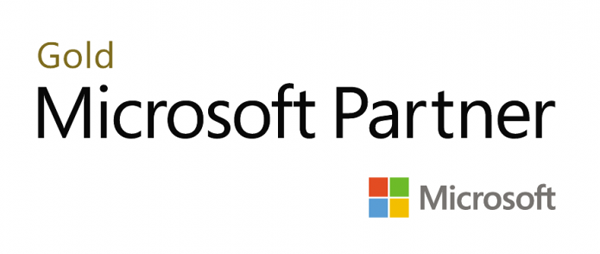Informationstechnologien & IT-Sicherheit
Implementing an Azure Data Solution (DP-200).
- Seminar
- Präsenz / Virtual Classroom
- Zurzeit keine Termine
- 24 Unterrichtseinheiten
- Teilnahmebescheinigung
Seminarnummer: 29519
Azure Datenbanklösungen kennen und entwickeln.
In diesem Training implementieren Sie verschiedene Datenplattformtechnologien in Lösungen, die den geschäftlichen und technischen Anforderungen entsprechen, einschließlich On-Premises-, Cloud- und hybride Datenszenarien, die sowohl relationale als auch NoSQL-Daten beinhalten.
Dieses Seminar wird ab August durch das Seminar DP-203 "Data Engineering on Microsoft Azure" abgelöst!
Nutzen
Die Teilnehmer erkunden die Implementation von Datensicherheit, dazu gehört die Authentifizierung, Autorisation, Datenrichtlinien und Standards.
Außerdem definieren und implementieren sie Datenlösungen, die Datenspeicher und Datenverarbeitung überwachen.
Zum Schluss erledigen Sie die Verwaltung und Fehlerbehebung von Azure-Datenlösungen inklusive der Optimierung und Disaster Recovery von großen Daten, Batchverarbeitung und Streaming Datenlösungen.
Zielgruppe
Die Zielgruppe für dieses Training sind Datenexperten, Datenarchitekten und Business Intelligence-Experten, die sich über die Datenplattformtechnologien, die auf Microsoft Azure existieren, informieren möchten. Eine zusätzliche Zielgruppe für diesen Kurs sind Lösungsentwickler, die Anwendungen entwickeln, die Inhalte aus den Datenplattformtechnologien, die auf Microsoft Azure existieren, bereitstellen.
Anforderungen
Sie sollten bereits über Azure und Cloud Grundkenntnisse verfügen, wie sie im Azure Fundamentals Seminar AZ-900 vermittelt werden.
Inhalte
Module 1: Azure for the Data Engineer
This module explores how the world of data has evolved and how cloud data platform technologies are providing new opportunities for businesses to explore their data in different ways. The students will gain an overview of the various data platform technologies that are available and how a Data Engineer's role and responsibilities has evolved to work in this new world to an organization's benefit.
Module 2: Working with Data Storage
This module teaches the variety of ways to store data in Azure. The students will learn the basics of storage management in Azure, how to create a Storage Account, and how to choose the right model for the data want to be stored in the cloud. They will also understand how Data Lake storage can be created to support a wide variety of big data analytics solutions with minimal effort.
Module 3: Enabling Team Based Data Science with Azure Databricks
This module introduces students to Azure Databricks and how a Data Engineer works with it to enable an organization to perform Team Data Science projects. They will learn the fundamentals of Azure Databricks and Apache Spark notebooks; how to provision the service and workspaces; and how to perform data preparation task that can contribute to the data science project.
Module 4: Building Globally Distributed Databases with Cosmos DB
In this module students will learn how to work with NoSQL data using Azure Cosmos DB. They will learn how to provision the service, how they can load and interrogate data in the service using Visual Studio Code extensions, and the Azure Cosmos DB .NET Core SDK. They will also learn how to configure the availability options so that users are able to access the data from anywhere in the world.
Module 5: Working with Relational Data Stores in the Cloud
In this module students will explore the Azure relational data platform options, including SQL Database and SQL Data Warehouse. The students will be able explain why they would choose one service over another, and how to provision, connect, and manage each of the services.
Module 6: Performing Real-Time Analytics with Stream Analytics
In this module students will learn the concepts of event processing and streaming data and how this applies to Events Hubs and Azure Stream Analytics. The students will then set up a stream analytics job to stream data and learn how to query the incoming data to perform analysis of the data. Finally, they will learn how to manage and monitor running jobs.
Module 7: Orchestrating Data Movement with Azure Data Factory
In this module students will learn how Azure Data Factory can be used to orchestrate the data movement and transformation from a wide range of data platform technologies. They will be able to explain the capabilities of the technology and be able to set up an end to end data pipeline that ingests and transforms data.
This module explores how the world of data has evolved and how cloud data platform technologies are providing new opportunities for businesses to explore their data in different ways. The students will gain an overview of the various data platform technologies that are available and how a Data Engineer's role and responsibilities has evolved to work in this new world to an organization's benefit.
- Explain the evolving world of data
- Survey the services in the Azure Data Platform
- Identify the tasks that are performed by a Data Engineer
- Describe the use cases for the cloud in a Case Study
Module 2: Working with Data Storage
This module teaches the variety of ways to store data in Azure. The students will learn the basics of storage management in Azure, how to create a Storage Account, and how to choose the right model for the data want to be stored in the cloud. They will also understand how Data Lake storage can be created to support a wide variety of big data analytics solutions with minimal effort.
- Choose a data storage approach in Azure
- Create an Azure Storage Account
- Explain Azure Data Lake storage
- Upload data into Azure Data Lake
Module 3: Enabling Team Based Data Science with Azure Databricks
This module introduces students to Azure Databricks and how a Data Engineer works with it to enable an organization to perform Team Data Science projects. They will learn the fundamentals of Azure Databricks and Apache Spark notebooks; how to provision the service and workspaces; and how to perform data preparation task that can contribute to the data science project.
- Explain Azure Databricks
- Work with Azure Databricks
- Read data with Azure Databricks
- Perform transformations with Azure Databricks
Module 4: Building Globally Distributed Databases with Cosmos DB
In this module students will learn how to work with NoSQL data using Azure Cosmos DB. They will learn how to provision the service, how they can load and interrogate data in the service using Visual Studio Code extensions, and the Azure Cosmos DB .NET Core SDK. They will also learn how to configure the availability options so that users are able to access the data from anywhere in the world.
- Create an Azure Cosmos DB database built to scale
- Insert and query data in your Azure Cosmos DB database
- Build a .NET Core app for Cosmos DB in Visual Studio Code
- Distribute data globally with Azure Cosmos DB
Module 5: Working with Relational Data Stores in the Cloud
In this module students will explore the Azure relational data platform options, including SQL Database and SQL Data Warehouse. The students will be able explain why they would choose one service over another, and how to provision, connect, and manage each of the services.
- Use Azure SQL Database
- Describe Azure SQL Data Warehouse
- Creating and Querying an Azure SQL Data Warehouse
- Use PolyBase to Load Data into Azure SQL Data Warehouse
Module 6: Performing Real-Time Analytics with Stream Analytics
In this module students will learn the concepts of event processing and streaming data and how this applies to Events Hubs and Azure Stream Analytics. The students will then set up a stream analytics job to stream data and learn how to query the incoming data to perform analysis of the data. Finally, they will learn how to manage and monitor running jobs.
- Explain data streams and event processing
- Data Ingestion with Event Hubs
- Processing Data with Stream Analytics Jobs
Module 7: Orchestrating Data Movement with Azure Data Factory
In this module students will learn how Azure Data Factory can be used to orchestrate the data movement and transformation from a wide range of data platform technologies. They will be able to explain the capabilities of the technology and be able to set up an end to end data pipeline that ingests and transforms data.
- Explain how Azure Data Factory works
- Azure Data Factory Components
- Azure Data Factory and Databricks
Hinweise
Dieses Seminar wird ab August durch das Seminar DP-203 "Data Engineering on Microsoft Azure" abgelöst!


